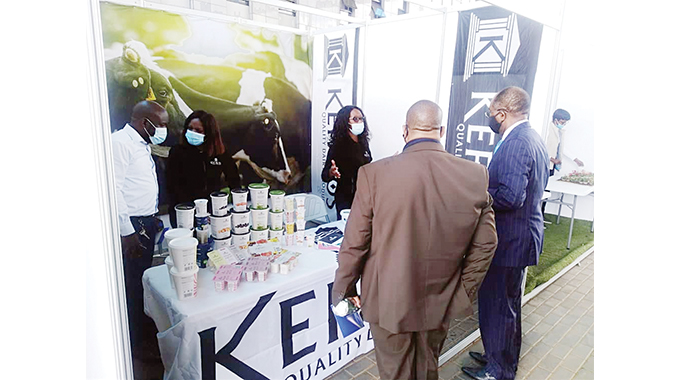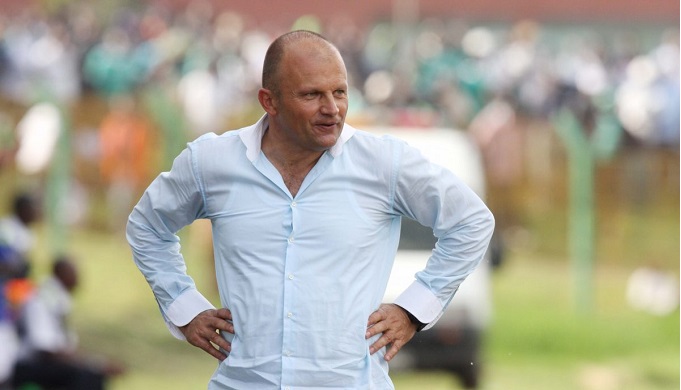Covid-19, GBV, sexual abuse cases up

Nqobile Tshili, Chronicle Reporter
MOST rural communities are struggling to access victim-friendly services, a development analysts say could perpetuate gender-based violence and sexual abuse.
Victim-friendly services include victim-centred investigations of cases by police, counselling and medical care for victims of sexual violence and physical abuse.
Following the outbreak of Covid-19, GBV and sexual abuse cases are said to have increased as victims are locked down with perpetrators.
The Zimbabwe Vulnerability Assessment Committee (ZimVAC) Rural Livelihoods Assessment (RLA) (2021) report shows that access to victim-friendly services is still very low in most rural communities at 39 percent nationally.
The report states that Matabeleland North has least access to victim-friendly services at 35 percent followed by Midlands at 36 percent, Masvingo and Manicaland at 38 percent, Matabeleland South at 39 percent.

Chief Nyangazonke
Mashonaland Central at 44 percent has the highest access to victim friendly services in the country’s eight rural provinces.
The report shows that 54 percent of rural households live within a 5km radius to the nearest health facility, 31 percent travelled between 5km to 10km to access medical facilities and 15 percent of the population went for more than 10km to their nearest clinics.
The ZimVAC report shows that 47 percent of the rural population can access police services within an hour.
Experts have expressed concern over low access to victim friendly services in communities saying this could lead to victims self-dejecting as a result of post-traumatic stress and in some cases, committing suicide.
Abuse is said to plunge victims into drug and alcohol abuse while others can even turn to prostitution due to depression caused by self-hate.
A local psychologist Ms Jacqeline Nkomo said access to victim friendly services should start at home level but in most instances that is where their problems emanate from.
Ms Nkomo said when victims speak out, as opposed to being supported they are usually dismissed by their loved ones making it difficult for them to receive professional help.
“In rural areas what makes it hard, is the community, especially victims who are not believed when they narrate that they have been abused. Not believing the victim is a barrier to accessing victim friendly service. The victim will not see the need to report to public institutions when those closest to them do not believe them. The victim would ask what will be the use of telling a stranger when my family does not believe me,” said Ms Nkomo,
“Charity begins at home, as long as people at home are not there to nurture you, people at home are not there to believe you, when they are not giving you that social support, it will affect the victim mentally.”
She said not believing victims also gives green light to perpetrators to continue with their abuse.
“This thing of having perpetrators not being brought to justice actually promotes abuse. This can also lead to those who are abused to turn into future monsters, street kids, because victims would not see the reason of being part of a certain families while others turn to prostitution as they no longer see their self-worth,” she said.
Matobo Youth Development Initiative (MYDI) information officer Ms Stacy Nyathi said her organisation has come face to face with the ineffectiveness of victim friendly services at grass root levels.
She said failure to access victim-friendly services leaves victims failing to cope with trauma.
“The victim friendly service is an essential arm in the fight against GBV among other forms of abuse. However, it is detached from most people in the rural areas where GBV is prevalent. Victims are more often than not young individuals and there is a lack of knowledge about the victim friendly services being offered by various arms of Government,” said Ms Nyathi.
She said despite police extending the victim friendly units to grassroot levels, victims still struggle to get assistance from law enforcement agents and some of them do not know how best to be assisted.
Ms Nyathi said there is a need to increase awareness campaigns on victim friendly services at grassroot levels.
Community Working Group on Health (CWGH) project team leader Mrs Nonjabulo Ncube said long distances between health centres and communities is another barrier contributing to rural dwellers not accessing victim friendly services.
She said this compromises victims’ health as some of them end up failing to be treated within 72 hours to prevent exposure to sexually transmitted diseases and pregnancy.
“In terms of counselling of victims, that is where there is another problem. Because at a rural clinic, there could be one or two nurses on duty who might prioritise providing post exposure prophylaxis, among other necessary treatments and then overlook counselling of victims. Also, they might even not be properly trained for that. So, if there are no other organisations providing counselling within those communities then it ends up being a challenge for victims,” she said.

Mrs Nonjabulo Ncube
Chief Nyangazonke from Matobo District, in Matabeleland South said there is a concern that some victims of abuse suffer in silence.
The chief who also doubles as a Senator said there is a need for communities to be educated on the impact of abuse and how it damages communities.
“In terms of challenges we have to look at the location and distances where these services are accessed and look at training of the people dealing with that. Also, language barrier becomes an issue because in our communities we have people holding Government offices but at the same time there can be language challenges with the local community. The other thing is how well do people know that if they become a victim of abuse, where do they report?” said Chief Nyangazonke.
National police spokesperson Assistant Commissioner Paul Nyathi said police have an arm that handles victims when cases have been reported.
“As ZRP we have the Victim Friendly Unit at all the police stations. I might need to get that report so that we can study it and find out areas which they are saying there are no victim friendly services. The victim friendly services are not only about the police, it’s a multi-sectoral approach so I may need to study that report and provide an appropriate response,” said Asst Comm Nyathi. — @nqotshili











Comments